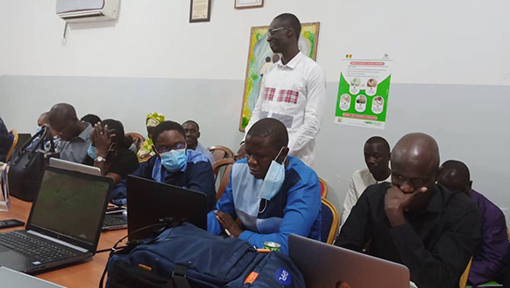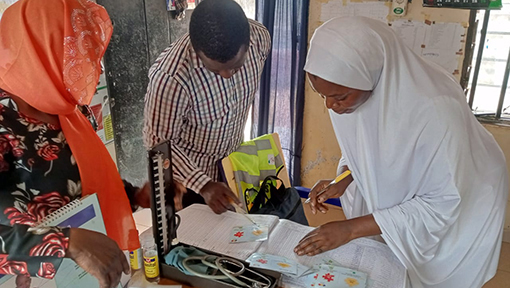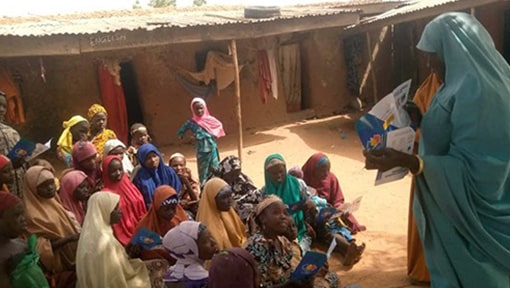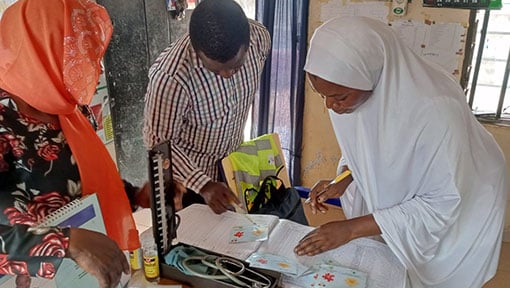Municipalities and Health Systems Partner to Expand TCI’s Impact in Francophone West Africa
Contributors: Fatima Sow and Moussa Faye
 In Francophone West Africa, municipalities and health systems are changing the face of family planning (FP) and adolescent and youth sexual and reproductive health (AYSRH) programming. During a recently held webinar, city government health officials in Burkina Faso, Senegal and Cote d’Ivoire shared how municipalities and health systems are now collaborating to bring critical and lasting changes to reproductive health programs. But before engaging with The Challenge Initiative (TCI), they had no clear roadmap for effectively collaborating on FP/AYSRH.
In Francophone West Africa, municipalities and health systems are changing the face of family planning (FP) and adolescent and youth sexual and reproductive health (AYSRH) programming. During a recently held webinar, city government health officials in Burkina Faso, Senegal and Cote d’Ivoire shared how municipalities and health systems are now collaborating to bring critical and lasting changes to reproductive health programs. But before engaging with The Challenge Initiative (TCI), they had no clear roadmap for effectively collaborating on FP/AYSRH.
In an effort to support sustainable impact across the region, TCI actively promotes and facilitates bringing together both entities – municipalities and health systems – in 11 cities in five countries to not only implement and scale proven FP/AYSRH interventions, but also shift mindsets towards local government and community ownership in overcoming challenges faced in implementing and managing these interventions.
As a result, TCI is committed to continuously checking in, hearing from and supporting municipal and health system stakeholders to ensure a fruitful collaboration. During the Dec. 9 webinar, three city stakeholders shared what they view as the accomplishments and underlining factors that are contributing to their successful collaboration with the health system. These include:
- Signing a Memorandum of Understanding (MOU) that governs their collaboration. These agreements highlight fundamental roles and responsibilities of both parties that help facilitate the effective implementation of FP/AYSRH activities with an aim to: i) strengthen the supply and demand for quality health services, ii) mobilize resources to finance FP/AYSRH activities and iii) improve the socio-political environment for implementing FP/AYSRH programs
- Receiving continuous coaching support from TCI, which strengthens service delivery and community systems to be able to implement proven FP/AYSRH interventions and effective troubleshoot and adapt to challenging environments
- Establishing a Joint Steering Committee and a Coordination and Management Unit
- Introducing the Reflection and Action to Improve Self-reliance and Effectiveness (RAISE) tool, which is used on a quarterly basis by municipal and health system stakeholders to monitor progress and determine priority actions
- Using data for decision-making routinely
Mr. Jules Coly, TCI’s focal point from Ziguinchor Municipality in Senegal shared that:
Partnering with TCI has catalyzed a great working collaboration with the health system, adding value in achieving common goals. This collaboration is key to getting key stakeholders to sit down together to discuss and implement activities that are showing significant results.”
As a result, data shared by the health district of Ziguinchor following the start of implementation of TCI’s proven interventions and technical coaching shows how utilization of contraception services has continued to improve over time. Table 1 looks at utilization of contraception services by age groups.

Table 1: Ziguinchor family planning indicators (data source: Ziguinchor health district).
The Medical Chief Officer in the City of Koudougou, Burkina Faso, Dr. Sylvain Soubeiga, shared similar sentiments:
Koudougou’s health district communication has improved, and municipality stakeholders now participate more effectively in health district meetings with a clear understanding of their roles and responsibilities to the health district. As a result, we have seen great improvements in our score from two rounds of the RAISE tool; we can be very proud of our improvements, seeing our score improve from 51% to 72%. This development indicates a new dynamism and collaboration to help us achieve our family planning and reproductive health goals.”
Also participating in the webinar from Bouaké, Cote d’Ivoire, was Jean Christophe Aller. Please watch a recording of the webinar below:






